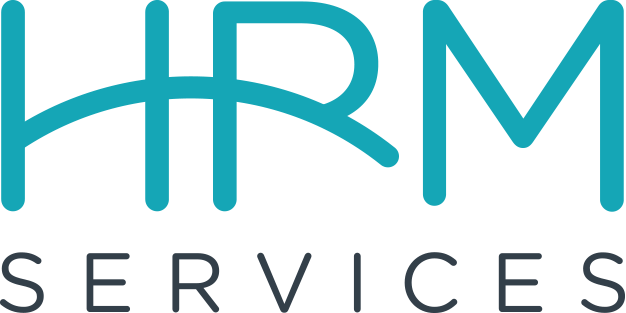
Welcome to December’s edition of HR hot topics! I’m your host, Jodi Schafer.
This is our last episode of the calendar year and what a whirlwind it has been. I’m going to end the year talking about vaccination mandates. We’ve got several mandates in place and I just want to give a status update on them.
Let’s jump in!
Many of you are probably familiar with the OSHA mandate, which was an emergency temporary standard that affected employers with more than 100 employees. For some of you listening, you’re like, well, that’s not us, right? We’re a small employer. But it’s important to keep this in mind, because while they issued an emergency temporary standard for large employers, at the same time OSHA opened up a public comment period.
They opened up a public comment period to talk about the reality of small employers also having to adopt some sort of vaccination policy, mandate, or testing option. While the focus might be on large employers right now, it doesn’t mean those of you listening with a smaller employee headcount are out of the woods. Now, the good news for that emergency temporary standard through OSHA is that it currently is stayed, which is just a fancy way of saying it’s on pause. The language was introduced in early November on a Thursday and published on a Friday, and then all of a sudden there were lawsuits in the courts by Saturday, all across the nation. The first one was in the fifth circuit court.
Since there were so many different lawsuits across the nation, they combined all of the lawsuits and then randomly picked a federal circuit court that would hear the case. And it just so happens they picked the sixth circuit court, which is the one that Michigan is in. So, we’ll be very close to this. This case will most likely go all the way to the US Supreme Court. But while it’s in litigation, everything is on pause, including vaccination policy timelines.
Much of this started in early December, and January 4th was the deadline for all employees to either get fully vaccinated or for employers to allow unvaccinated staff to undergo weekly testing. Again, that was for large employers. So right now everybody’s taking a breath on that and we’re just waiting to see what happens in the courts. Now, much of the guidance that you’re going to be hearing from your attorney or business associations is that even though it’s on pause, this ruling may impact you because of your employee headcount, and you should probably start taking some steps to be prepared just in case the courts end up siding with OSHA on this. If they do, then all of the timelines that were outlined in that initial ruling are still in affect.
For some of you listening, that means at a minimum, you probably want to have a draft of a vaccination policy ready to go, even if you’re holding off on implementation. That policy should outline your company’s preference or position on the topic. Are you going to mandate all of your staff to be vaccinated? Will you allow for exemptions for medical and religious reasons? Or, are you going to allow unvaccinated staff to undergo weekly testing and wear a mask in the office? You have that choice, but you should probably have that policy language drafted. Even if you’re holding off on implementation, you also need to know the vaccination status of all your staff. You probably have that anyway, because vaccine status has an impact on quarantine rules.
Those kinds of things are good preparatory exercises to be doing. The other thing I want to talk about is a similar vaccination policy that came out through the center for Medicaid and Medicare services. In my opinion, this one isn’t getting enough air time. And this is again, the federal government, instead of going through OSHA and making it a workplace safety issue, they went through a federal program for Medicare and Medicaid funding. Because the dollars are flowing through the feds, they have more control over that program and they sort of made it a condition of need participation in those programs. So for many of you working in healthcare, these are dollars that you depend on. These are very real revenue streams. It’s not optional whether you participate, and it’s certainly not based on headcount like the OSHA standard is – it’s based on your industry.
I want to touch on this policy for a moment, because like I said, I don’t think it’s getting enough air time and it’s important as it has similar timelines. So, it’s a vaccine mandate and folks have to have their first dose no later than December 5th, which has come and gone. Additionally, people must be fully vaccinated no later than January 4th. Now what’s interesting about this CMS rule is that it doesn’t have a testing option. It’s not clear whether or not as an employer, you could choose to let unvaccinated staff test instead of getting vaccinated – it just says you have to be vaccinated. This applies, again, not based on headcount but based on your place of employment. For example, ambulatory, surgery centers, hospices, hospitals, including critical access hospitals and FQHCs, long-term care facilities, home health agencies, outpatient rehab facilities, and infusion therapy suppliers. That’s a long list.
It’s not just a traditional hospital or facility – it does affect some of you listening to this, even if you have a smaller employee headcount, just because of the type of healthcare services you provide. Now, the good news again, because I know I have a lot of optometrists and dentists and physician outpatient physician practices listening to this, this CMS rule does not directly apply to you. If you weren’t on that list, this doesn’t directly apply to you. Even if you’re getting some funding from Medicare and Medicaid, you’re not regulated by those same CMS conditions or requirements of participation. So a little bit of relief there. Like the federal OSHA rule, there have been several states that have sued and said that this isn’t constitutional.
With that said, there is a stay in place in some states, but it’s not a national stay on the CMS rule. Michigan is not one of the states currently included in the stay. If you’re an employer and you’re in one of those healthcare settings that I listed, you need to be operating as though this is your reality. Now, I don’t know what’s going to happen. I don’t have a crystal ball to predict what’s going to happen on the CMS side. I’m guessing that OSHA is going to have an uphill battle on the emergency temporary standard for the large employer side, but all of that remains to be seen. I think we need to be watching this very carefully. I’m going to link a couple of sample policies in the email message that the Small Business Association of Michigan put together. I’ll link some helpful summary articles as well to help you keep all of this straight.
Addendum
The pace of change is hard to keep up with sometimes and in this month’s video, I missed a recent update to the CMS’s court ordered stay on their vaccination mandate of healthcare facilities and other covered employers. In a recent CMS memorandum to State Survey Agency Directors, they state:
“On November 29 and November 30, 2021, the United States District Court for the Eastern District of Missouri and United States District Court for the Western District of Louisiana issued preliminary injunctions against the implementation and enforcement of the Interim Final Rule against Medicare and Medicaid-certified providers and suppliers. Between the two of them, these injunctions cover all states, the District of Columbia and the US Territories. CMS has appealed both of these decisions, and has filed motions for stays of these orders. While CMS remains confident in its authority to protect the Page 1 of 2 health and safety of patients in facilities certified by the Medicare and Medicaid programs, it has suspended activities related to the implementation and enforcement of this rule pending future developments in the litigation. Accordingly, while these preliminary injunctions are in effect, surveyors must not survey providers for compliance with the requirements of the Interim Final Rule. Health care facilities, of course, may voluntarily choose to comply with the Interim Final Rule.”
So, that means that as of now both the OSHA ETS and the CMS Interim Final Rule that mandate vaccination are on hold pending court decisions. The advice to continue preparing in the case either ruling is deemed constitutional is still the path forward. However, you can hold off on implementation until the courts tell you otherwise.
As always, thank you for taking the time to check out our HR Hot Topics. We’ll talk to you in the new new year!

